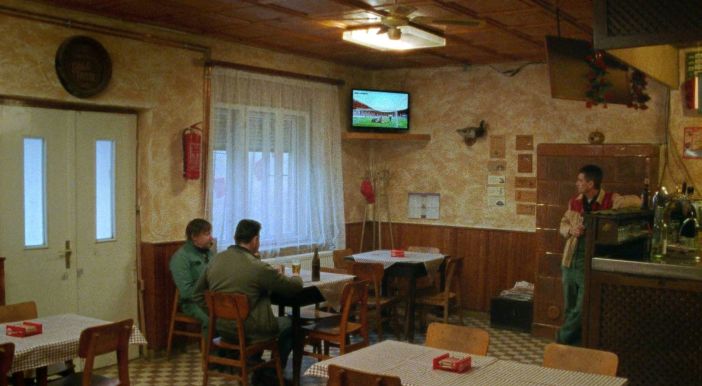When a man known as Oroslan dies, the news quickly spreads through a little village, causing grief and emotion.
Later on, actions become words and words become stories. In order to overcome the sorrow and restore the natural flow of life, the villagers start sharing their memories about Oroslan, re-creating his image through their tales.
Director Matjaž Ivanišin’s joins us on Close-up Culture ahead of the film’s world premiere at the 2019 Locarno Film Festival.
Q: I read that ‘Oroslan’ comes from your own experience in a small village. Can you expand on that and why you felt it would be interesting to explore through film?
A: That is not really true. The idea for the film was born as I was reading a short story written by Zdravko Duša. And that story was set in a small village. I myself come from an urban environment, but the portrayal of the man Duša is writing about in his story deeply touched me.
I also felt that it indirectly talks about somebody from my family. At that point I started to think about making a film. The environment the story is set in is definitely important, but it is the human being that is crucial for my film.
Q: In this film, the death of Oroslan has a chain reaction which eventually leads the villagers to recreate his image through their tales. What type of person is Oroslan?
A: We never see Oroslan in the film. Everything we find out about him is from the stories of the people who knew him and from the spaces where he often hung about. I would say Oroslan was quite ordinary. He liked going to the local bar, he liked female company when he was younger, he could be a witty conversationalist. So, nothing special really, but people liked him.

Q: What does your film say about the nature of stories, community and memory?
A: The film presents three phases that follow Oroslan’s death. The first one is the actual moment of death, the second one is Oroslan’s brother talking about his death, and the third one when his neighbours and friends talk about him. I was interested in how Oroslan’s death gradually transforms from the actual event to a story, or rather a string of stories. How actions become words and words become stories. How Oroslan still lives only in the collective memory of others.
Q: I understand the film was brought to life by members of the Slovenian minority in Hungary. Can you tell us about the shoot and the people you worked with?
A: I am extremely grateful to have had the chance to work with these people. Their faces and their specific dialect are vital for this film. When I decided on the location, I felt it was crucial that I invite people from the environment the film is set in to work with me, and that as a result the basic story gets intertwined with local stories.
Q: ‘Oroslan’ will screen at the Locarno Film Festival. What excites you about bringing your film to this prestigious festival?
A: Not just me, the whole team was thrilled when we received the invitation. We highly respect the Locarno Film Festival and we couldn’t wish for a better place to premiere our film.
